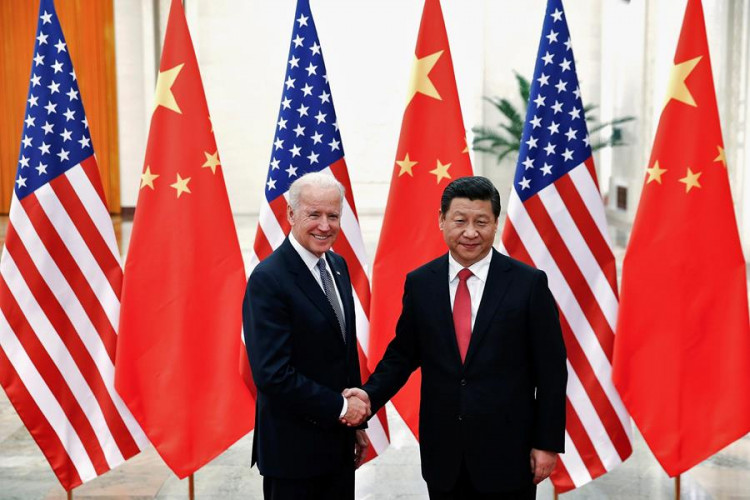Chinese President Xi Jinping called for unity among the Chinese people in the face of U.S. suppression in a new speech. Xi's remarks come amid escalating tensions between the two countries over issues ranging from trade to allegations of espionage.
As domestic and international pressures build, China's leader has taken an unusually forthright stance, criticizing the U.S. and urging private enterprises to "fight" with the Communist Party.
Xi spoke at the annual legislative gathering in Beijing, attempting to reassure the private sector that has been shaken in recent years by his statist policies and asking them to help increase growth, employment, and technological innovation.
"[In the past five years,] Western countries led by the U.S. have contained and suppressed us in an all-round way, which has brought unprecedented severe challenges to our development," Xi said at a gathering attended by government advisers representing private firms.
Xi, when addressing a group of business representatives from a prominent governmental advisory body, recently voiced his concern about the external and economic issues facing China and called on the Chinese people to "unite as one."
The Chinese economy recently reported its second-worst yearly growth rate in over half a century, prompting his admonition.
Tuesday's customs statistics indicated that China's exports declined by about 7% from January to February, continuing a downward trend from the previous months due to weakening global demand. We saw a 10.2% decline in imports.
By bringing China's free-thinking private companies into line with party aims, Xi, the country's most powerful leader in decades, may be able to hasten the country's shaky economic recovery and solidify his grip on power.
Relations between the U.S. and China have been marked by both cooperation and conflict over the years. The two countries have engaged in extensive trade and investment, but tensions have flared up in recent years over issues such as intellectual property theft, market access, and the South China Sea.
The U.S. has also expressed concerns about human rights abuses in China, including the treatment of ethnic minorities in Xinjiang and the crackdown on democracy advocates in Hong Kong. Both countries have imposed tariffs on each other's goods in a tit-for-tat trade war, and the U.S. has taken steps to limit Chinese access to American technology. In addition, the U.S. has increased its military presence in the region, which China views as a threat to its territorial integrity.
Despite these challenges, both countries have expressed a desire to maintain a constructive relationship and have engaged in ongoing negotiations to try to resolve their differences.






